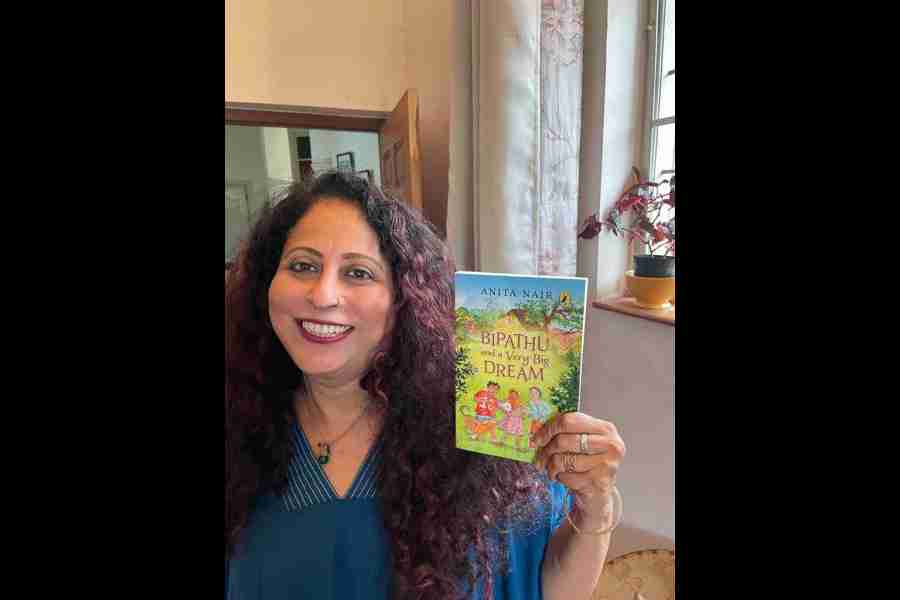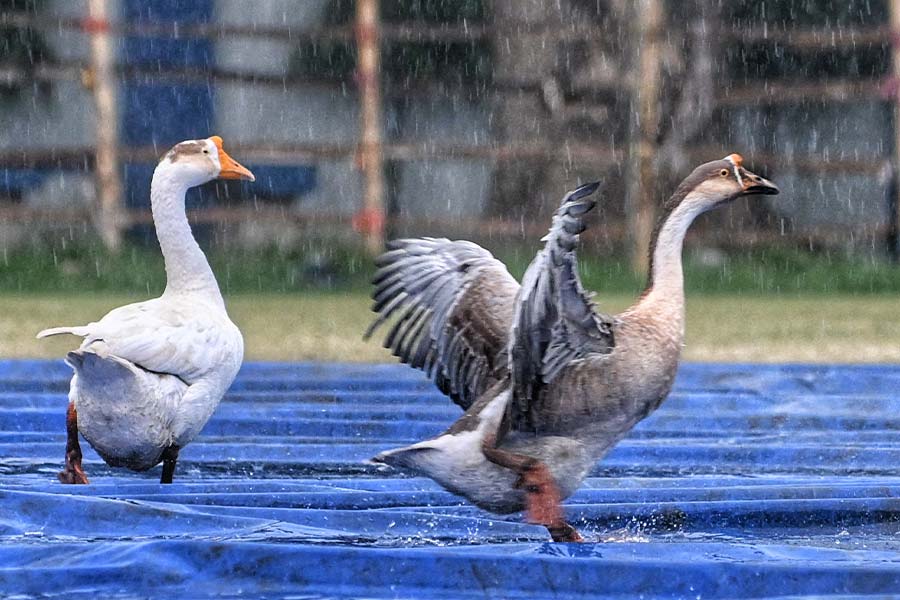After Muezza and Baby Jaan, author Anita Nair is back with yet another children’s book after a gap of six years. Her latest, Bipathu and a Very Big Dream, revolves around this rebel kid Bipathu who has only one dream — to be able to play football one day. In a tête-à-tête with t2, the novelist discusses the main character’s indomitable spirit, shades of grey and her own childhood.
How did you come up with the characters in your book?
The village in the book first appeared in my first novel, The Better Man, which was published in 2000. Then I used this village when I wrote my audio short story The Little Duck Girl published in 2020. Maash (Sree Raman), the main character of the latter has found his place in my new book. It’s a fictitious place that I wanted to revisit again. I like writing about this place, which is based on my ancestral village Mundakkottukurissi in Kerala.
Bipathu, the central character of the book, is very fond of Hrithik Roshan and she often dreams of playing football with the superstar. Why did you choose the actor to be a part of your book?
There is a very funny story to it. I met this dog named Duggu when I went to Himachal Pradesh. This fellow would wake me up by bouncing on me every morning. He is one of my most favourite dogs. In another instance, a friend of mine once mentioned that Hrithik Roshan’s nickname is Duggu. Now you know how these characters are correlated in my thoughts and have found an expression in my book. As far as Bipathu is concerned, there is a fantasy element attached to him, although he is from a distant land. She does not understand what he is saying but she will still watch his movies and enjoy all his dance moves and those fighting scenes. It is natural for girls of her age to have a crush on an actor or a sports personality or whatever. My idea of having Roshan in my book was more whimsical. It was just a series of thoughts that led the characterisation process.
We often see use of Malayalam words, or for that matter any regional language, inserted in the text. Do you subscribe to the idea of ‘mother-tongue-first’?
I’ve always done this in all my writings. I believe that some of these words just cannot be translated to or replicated in English. It’s the flavour of the place or the dialect. I want to be able to capture that flavour, when I’m writing in English. I do this by peppering English texts with regional words. And as far as writing in English is concerned, the region in which the story is set has a definite influence on the language. Even the English that we speak in India has so many variations. The way a person would speak English in Kerala is very different from the way someone would speak English in Bihar. I believe that that has a lot to do with the mother tongue. Language is an evolving, organic thing. I believe that a writer needs to resonate with the people he/she is writing for.
Bipathu dreams of playing football and often challenges her gender-assigned roles.
It’s a recurrent theme in my writing. My writing reflects on the gender divide and the gender equation prevalent in our society. While writing this book, I wanted to show this divide through the eyes of this nine-year-old girl in a state where football is worshipped. Talking about her fascination for football, it is still mostly perceived as a boys’ game. I’m yet to see little girls playing football on the road or in a field. So it made me question the state that’s so obsessed with football, and has so many fan clubs dedicated to Brazil and Argentina, and yet there is nobody to play this game with Bipathu. During the World Cup we see these giant cutouts of Neymar, Messi and Ronaldo. There’s so much of an obsessive attachment towards football like it is in Bengal. Bipathu demanded what deserved to be written about.
What do you think makes Bipathu a special character in children’s literature?
She is the epitome of resilience, a character trait I admire in people. Despite the wrongs in her life, she somehow manages to keep herself together, and believes that she can make things happen.
Do you identify with Bipathu from your childhood years?
I didn’t want a goody-goody little girl. I wanted a girl who is exactly like most nine-year-old children would be. I wanted the character to be real. She comes from an underprivilieged background and has a lot on her plate. She has a differently-abled brother; she tries to help him out with his studies. There are many good things about her, and then come the grey shades — her little acts of duplicity and the fact that when she’s angry, she does not watch her words. She head-butts her cousin. I have tried to portray basic human emotions which you would not always find in children’s books. There’s a bit of me in her and a bit of a friend of mine in the emotional side of Bipathu. As a child, I liked running errands. I would give funny names to animals and say bye to everything and all of that.
You have received positive feedback from none other than the athlete, Anju Bobby George....
She has written such kind words. I had always wanted an athelete to give a blurb for my book. After I sent her a hardcopy, Anju told me that her little girl grabbed my book and started reading it.






